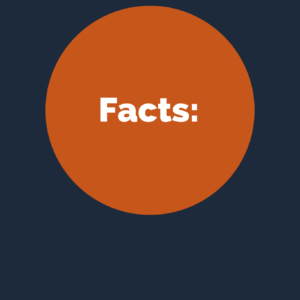This information is provided directly from a press release by the Kentucky Department for Local Government.
Applications are now open for the Kentucky G.R.A.N.T. Program! One of the top barriers to federal grant funding reported by Kentucky nonprofits is meeting cash match or cost-sharing requirements. For this reason, Grant Ready Kentucky and our partners championed Kentucky House Bill 9, which passed unanimously and was signed into law on April 7, 2023. The bill created the Government Resources Accelerating Needed Transformation Program (G.R.A.N.T. Program), which established a $2 million fund to match federal grants for priority county projects. The bill took effect on June 28, 2023, and application details are now available.
The G.R.A.N.T. Program is administered by the Department for Local Government (DLG), and prioritizes public benefit projects in eastern and western counties that have seen significant energy job losses as defined by the Interagency Working Group (IWG). Applications are accepted on a rolling basis.
Eligibility
To be eligible, organizations must be either a public agency as defined in KRS 61.805 or a nonprofit entity engaged in public benefit improvements to one of IWG’s designated priority communities. IWG priority communities are areas impacted by concentrated direct coal-related job losses from mine and power plant closures in recent years. Additionally, a regional project may be proposed when eligible grant recipients residing in different counties submit a single grant application.
Where
Eligible counties include:


Eligible Projects
Eligible projects are those with a “public purpose”. According to the bill a “public purpose” includes, but is not limited to:
- Enhance economic vitality, including revitalization of structures that have a public purpose or benefit;
- Promote or develop an artistic or philanthropic purpose;
- Improve traditional infrastructure such as water and wastewater treatment facilities, transmission lines, transportation facilities, and flood and wastewater management;
- Create or enhance telecommunications infrastructure, including cellular towers, fiber optic expansion, and technology infrastructure;
- Promote agricultural activities and development;
- Enhance development of previously mined areas or areas previously used by the coal industry and other industrial activities into uses that diversify the local economy;
- Create or expand recreational facilities, such as walking, hiking, all-terrain vehicles, bike trails, picnic facilities, restrooms, boat docking and fishing piers, and athletic facilities;
- Acquire private property that promotes local economic vitality and housing development and enhancement;
- Preserve or enhance buildings that are of local historic or economic interest;
- Restore or create retail facilities, including related service, parking, and transportation facilities, to revitalize decaying downtown areas;
- Construct or expand other facilities that promote or enhance economic development or tourism opportunities, thereby promoting the general welfare of local residents;
- Provide facilities and activities for local residences that enhance quality of life, including but not limited to childcare access and public transportation;
- Provide vocational and entrepreneurial training for displaced miners and other persons who have lost jobs or have been unable to find employment or business opportunities in the region;
- Invest in priority communities housing stock removal and remediation to facilitate community preservation and aesthetics or
- Create drug and substance abuse rehabilitation programs and engrossed facilities.
Additionally, the Department for Local Government (DLG) has discretion to choose eligible projects based on the following criteria:
- The project will enhance a priority community or region
- The granting entity for which the department’s matching grant is being used requires a public purpose for grant eligibility and
- DLG in its judgment concludes the proposal will enhance the quality of life or services in a priority community or region
Application
Contact Information
Office of State Grants Department for Local Government
100 Airport Road Drive, 3rd Floor
Frankfort, KY 40601
Contact: Aaron Jones 502-892-3450
Email Address: aaronj.jones@ky.gov
Additional Resources
Area Development Districts
Area Development Districts (ADDs) assist priority communities in identifying available grant opportunities, and in preparing G.R.A.N.T. Program applications. While projects do not have to go through ADDs to be eligible, they can serve as a tremendous resource for preparing projects for a successful application.
Kentucky’s Area Development Districts

- Purchase
- Pennyrile
- Green River
- Barren River
- Lincoln Trail
- KIPDA
- Northern Kentucky
- Buffalo Trace
- Gateway
- FIVCO
- Big Sandy
- Kentucky River
- Cumberland Valley
- Lake Cumberland
- Bluegrass
Grant Ready Kentucky’s Grant Experts
As part of our mission, we offer Kentucky nonprofits free 1-on-1 sessions with grant professionals. These one-hour teleconference sessions are perfect if you have a specific question about a grant application or if you need help getting started with grants. Book a FREE session here.
Finding Federal Grants – The Energy Communities Clearinghouse
The Energy Communities Clearinghouse is a database of federal funding relevant to coal, oil and gas, and power plant communities across the country. Learn how to use this tool to tap into $Billions of federal funding.
Unlocking Federal Grants
If you are planning to apply for federal funding for the first time, one of the very first things you need to do is register with the System for Award Management (SAM) and obtain a Unique Entity Identification Number (UEI). Here’s our guide to getting started.
Federal Grant Match Requirements 101
Federal grants often require grant recipients to match a percentage of the federal award with other sources of cash or in-kind (non-cash) resources. A majority of Kentucky nonprofits surveyed by Grant Ready Kentucky find match requirements to be a significant barrier to applying for public funds. In this article, we outline the basics of federal grant match requirements and how to meet them. Read the article here.
Rural Partners Network
The Rural Partners Network is working on the ground in selected RPN Community Networks to help navigate and access programs from across the federal government and other providers, secure technical assistance, and develop local capacity.
Community Networks in Kentucky:
- Fulton County
Counties of Fulton, Kentucky and South Fulton, Tennessee. - Kentucky Highlands
Counties of Bell, Perry, Harlan, Leslie, Letcher, Whitley, Knox, Clay.


